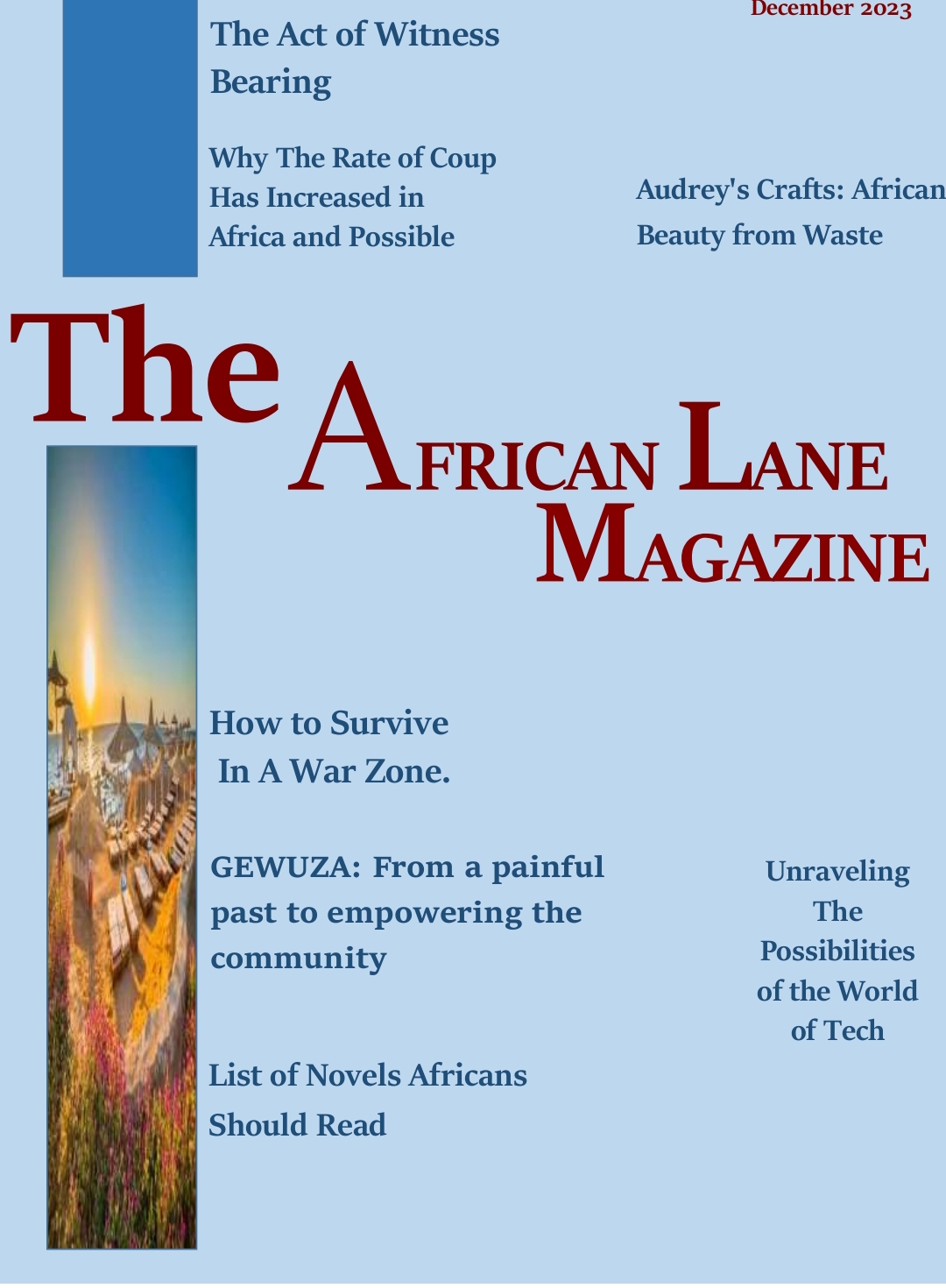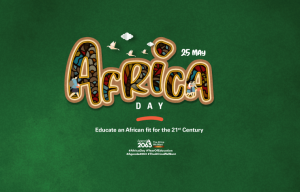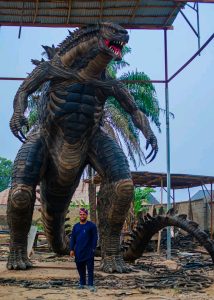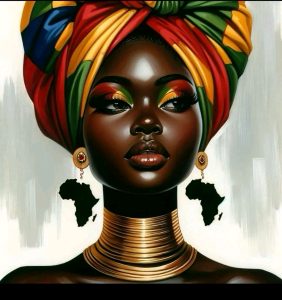Egypt the “Gift of the Nile.”
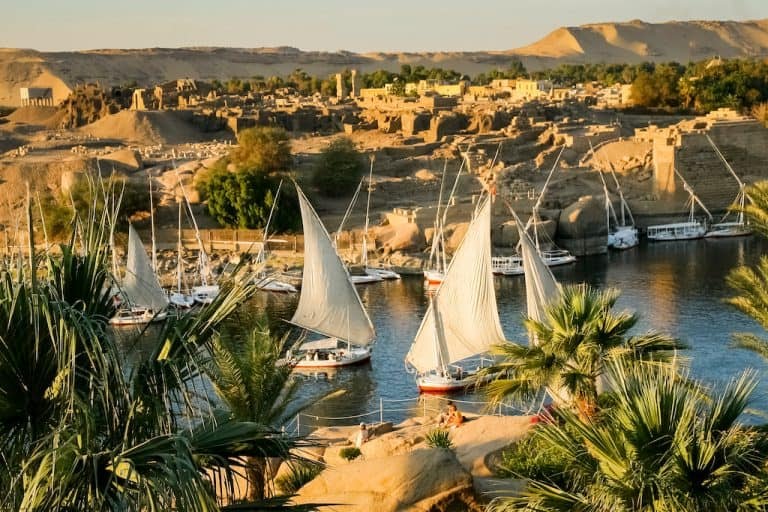
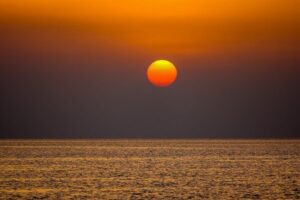
Arab Republic of Egypt
| Capital
and largest city
|
Cairo 30°2′N 31°13′E |
|---|---|
| Official languages | Arabic |
| National language | Egyptian Arabic[a] |
| Religion | See Religion in Egypt |
| Demonym(s) | Egyptian |
| Government | Unitary semi-presidential republic |
| • President | Abdel Fattah el-Sisi |
| • Prime Minister | Moustafa Madbouly |
| • House Speaker | Hanafi Ali Gibali |
| Legislature | Parliament |
| Establishment | |
| • Unification of Upper and Lower Egypt[1][2][b] |
c. 3150 BC |
| • Muhammad Ali dynasty inaugurated | 9 July 1805[3] |
| • Independence from United Kingdom |
28 February 1922 |
| • Revolution Day | 23 July 1952 |
| • Republic declared | 18 June 1953 |
| • Current constitution | 18 January 2014 |
| Area | |
| • Total | 1,010,408[4][5] km2 (390,121 sq mi) (29th) |
| Currency | Egyptian pound (E£) (EGP) |
| Time zone | UTC+2[c] (EGY) |
| Driving side | right |
| Calling code | +20 |
| ISO 3166 code | EG |
| Internet TLD | |
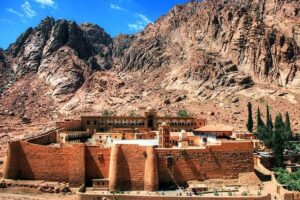
One of the oldest monasteries in the world, St. Catherine’s stands at the foot of Mount Sinai, amid the desert mountains of the Sinai Peninsula, where Moses is said to have received the Ten Commandments.
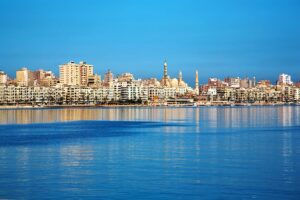
Alexandria has a history that not many others can match.
Founded by Alexander the Great, home of Cleopatra, and razzmatazz renegade city of the Mediterranean for much of its life, this seafront city has an appealing days-gone-by atmosphere that can’t be beaten
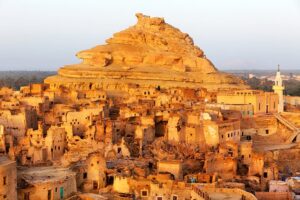
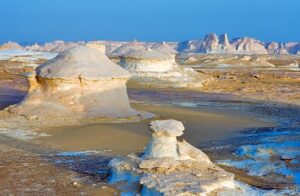
White Desert Egypt
The fabled White Desert of Egypt is a very interesting area in Egypt can be found 28 miles north of the town of Farafra. The desert has an otherworldly beauty with bizarre, ghost-white rock formations sprouting from the desert sands. The strange structures are actually huge chalk formations created as a result of occasional sandstorms in the area.
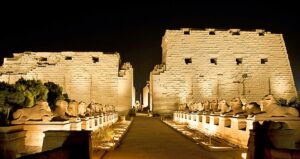
Famed for the Valley of the Kings, Karnak Temple, and the Memorial Temple of Hatshepsut, the Nile-side town of Luxor in Upper Egypt has a glut of tourist attractions.
This is ancient Thebes, power base of the New Kingdom pharaohs, and home to more sights than most can see on one visit.
Apart from the Nile Valley, the majority of Egypt’s landscape is desert, with a few oases scattered about. Winds create prolific sand dunes that peak at more than 30 metres (100 ft) high. Egypt includes parts of the Sahara desert and of the Libyan Desert. These deserts protected the Kingdom of the Pharaohs from western threats and were referred to as the “red land” in ancient Egypt.
Towns and cities include Alexandria, the second largest city; Aswan; Asyut; Cairo, the modern Egyptian capital and largest city; El Mahalla El Kubra; Giza, the site of the Pyramid of Khufu; Hurghada; Luxor; Kom Ombo; Port Safaga; Port Said; Sharm El Sheikh; Suez, where the south end of the Suez Canal is located; Zagazig; and Minya. Oases include Bahariya, Dakhla, Farafra, Kharga and Siwa. Protectorates include Ras Mohamed National Park, Zaranik Protectorate and Siwa.
Culture
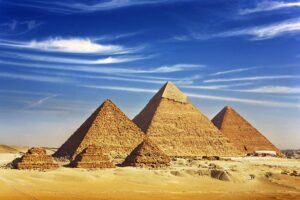
The last surviving of the Seven Wonders of the Ancient World, the Pyramids of Giza are one of the world’s most recognizable landmarks.
Egyptian identity evolved in the span of a long period of occupation to accommodate Islam, Christianity and Judaism; and a new language, Arabic, and its spoken descendant, Egyptian Arabic which is also based on many Ancient Egyptian words.

The work of early 19th century scholar Rifa’a al-Tahtawi renewed interest in Egyptian antiquity and exposed Egyptian society to Enlightenment principles. Tahtawi co-founded with education reformer Ali Mubarak a native Egyptology school that looked for inspiration to medieval Egyptian scholars, such as Suyuti and Maqrizi, who themselves studied the history, language and antiquities of Egypt.
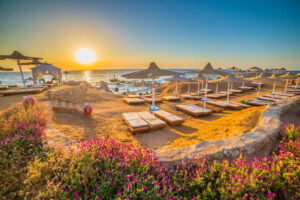
Egypt’s renaissance peaked in the late 19th and early 20th centuries through the work of people like Muhammad Abduh, Ahmed Lutfi el-Sayed, Muhammad Loutfi Goumah, Tawfiq el-Hakim, Louis Awad, Qasim Amin, Salama Moussa, Taha Hussein and Mahmoud Mokhtar. They forged a liberal path for Egypt expressed as a commitment to personal freedom, secularism and faith in science to bring progress.
Arts

Rosetta (also called Ar Rashid) is a city located on the western bank of the Nile River, 65km Northeast of Alexandria. Founded in the 9th-Century, Rosetta has an interesting history, incredible architecture and a vibrant culture. Rosetta is mostly known for being the birthplace of the Rosetta Stone, which was used to translate ancient Egyptian into Ancient Greek.
The Egyptians were one of the first major civilisations to codify design elements in art and architecture. Egyptian blue, also known as calcium copper silicate is a pigment used by Egyptians for thousands of years. It is considered to be the first synthetic pigment. The wall paintings done in the service of the Pharaohs followed a rigid code of visual rules and meanings. Egyptian civilisation is renowned for its colossal pyramids, temples and monumental tombs.
Well-known examples are the Pyramid of Djoser designed by ancient architect and engineer Imhotep, the Sphinx, and the temple of Abu Simbel. Modern and contemporary Egyptian art can be as diverse as any works in the world art scene, from the vernacular architecture of Hassan Fathy and Ramses Wissa Wassef, to Mahmoud Mokhtar‘s sculptures, to the distinctive Coptic iconography of Isaac Fanous. The Cairo Opera House serves as the main performing arts venue in the Egyptian capital.

Taba is one of the most spectacular locations to pay a visit to in Egypt. It is a colourful little town positioned at the northern tip of the Gulf of Aqaba.
Feature image: Aswan is a historic city on the southern end of the Nile River. Aswan is one of the oldest cities in Egypt and has a rich history dating back many thousands of years
Source: https://www.usnews.com/news/best-countries/egypt, Britannica, Wikipedia, globalgrasshopper.com, www.viator.com https://www.planetware.com/tourist-attractions/egypt-egy.htm
